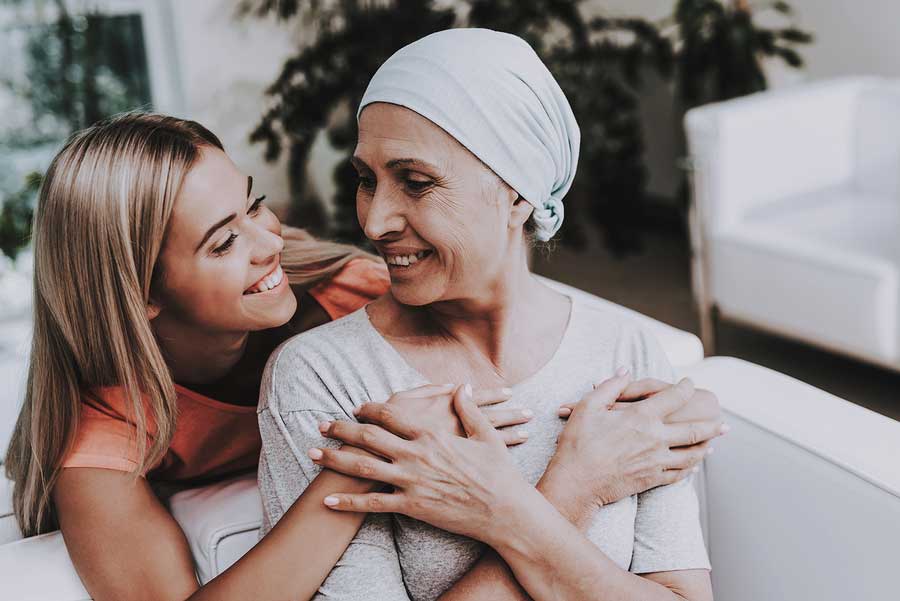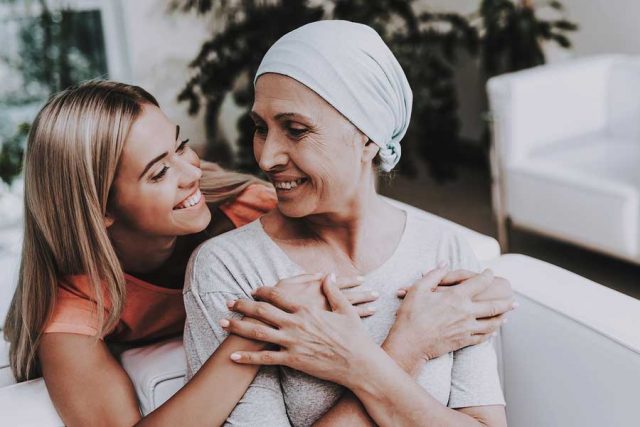Medically Reviewed by Beth Hendrickson, RN

You have breast cancer. Even though you may have heard the statistics, know that one in eight American women will hear those words at some point in her lifetime, you probably never thought it would be you. The odds are good that you do not have a family history of this illness. You may well have always taken good enough care of yourself, paid attention to your diet and to exercise, and thought you were in excellent health. The truth is that although your overall good health will help you get through these next months, you cannot protect yourself from developing this disease. You did not develop breast cancer because of anything you did or did not do. This did not happen to you because in some way you did not take good enough care of yourself. it is not because of where you live, what you eat, the wine you might enjoy occasionally, the exercise you did not do, or the stress of your job or family life. Breast cancer just happens. It is the result of a series of complex biological events that you could not control. No one yet understands what triggers the abnormal cell growth that becomes cancer. But you are not responsible!
We will remind you of this again, but it is so important that it bears repeating. Breast cancer is not a medical emergency. You have some time to consider your options and to make careful decisions.
We believe that we can help you. The two of us who wrote this book envision sharing with you what you would hear if you could at this moment sit with ten women who have been through this nightmare. Most important, each of us brings her own personal experience of being a woman with breast cancer. Hester has been an oncology social worker, working with women living with breast cancer, for more than twenty years. Joan, who is a professional writer with a doctorate in English and American literature, works in major gifts fund-raising at Brandeis University in Massachusetts: she came to one of Hester’s support groups, and the idea for this book grew from that association.
You might want to know how this book came to be. A year after we were diagnosed and treated, we both felt very grateful for having passed through the first round of our personal encounter with this disease. Both of us wanted to do something concrete to help other women just beginning their struggle with breast cancer. We discussed what form this impulse might take and decided that a simple handbook of thoughts and advice might be valuable and useful to other women and their family and friends.
Over a few months in the fall of 1994 we stapled together sheets of paper with tips and advice, and we left these pages out in the Hematology/Oncology Division of our hospital. ‘they disappeared rapidly. We wondered if we could get help producing a small handbook. A year later, with help from a group of young women who were talented graphic designers in the Communications Division at Thomson Financial Services in Boston and with support from the Beth Israel Hospital in Boston, we had 5,000 copies of our handbook printed for us at cost courtesy of R. R. Donnelley through the kind advocacy of Marilyn Brady. The handbook, Woman to Woman: Thoughts and Advice for Women Newly Diagnosed with Breast Cancer, appeared in February 1996 and was made available to patients through their surgeons, medical oncologists, and radiation oncologists at the Beth Israel Hospital in Boston.
Over the following year, the handbook was also distributed through several other Boston area hospitals as well as through doctors’ offices, hospitals, and clinics around the country, Because of our handbook’s popularity, the hospital (now known as Beth Israel Deaconess Medical Center) asked us to reprint it, and in the spring of 1998, a second run of 15,000 copies was produced. One copy was read by a patient who found it so helpful that she brought it to the attention of a friend at Avon Books in New York City. From January 1998 to May 1999, Hester and Joan worked with their editor, Ann McKay Thoroman, at Avon Books to produce the book you are now holding.
You may also be wondering who we are personally. We are both daughters, siblings, wives, and mothers. Between us we have six children ranging in age from eighteen to twenty-eight, and a hundred years of life experience. At the time of our treatments six years ago, we each had a preadolescent child of twelve.
We talked about this book with hundreds of other women and feel privileged to have the opportunity to pass on the cumulative wisdom of so many to you, our readers. Each of us who contributed to this project, either directly or indirectly, has received the same diagnosis; we have stood where you are now standing-, we know you feel (or will feel) many strong emotions, including fear, anxiety, bewilderment, denial, depression, and/or anger. “Why me?” you may ask, or at least, “Why me at this point in my life?” This book aims to share with you the kind of tips and advice we wish we had heard after diagnosis and before treatment.
You may want to respond, as many of us have at various times, “I’m too young/busy/healthy to have cancer!” None of us felt we had time for a serious disease, and frankly, none of us wanted to deal with cancer. But each of us has found ways to cope with this new and unwelcome predicament, just as you will. An excellent way to begin is to talk to other women with breast cancer, particularly those who have had treatments similar to the ones recommended for…
Did you find this article helpful? Join us at HealingWell for support and information about Breast Cancer. Connect and share with others like you.
andcopy; Hester Hill Schnipper andamp; Joan Feinberg Burns, Reprinted from the book, Woman to Woman, by arrangement with Avon Books, an imprint of HarperCollins Publishers, Inc. All rights reserved.
Hester Hill Schnipper, LICSW has been the Chief Oncology Social Worker at Beth Israel Deaconess Medical Center in Boston since 1979. She is past President of the Association of Oncology Social Work and, in 1991 received their national award for Oncology Social Worker of the Year. She has also been on the faculty at the Harvard Medical School and the Boston University School of Social Work. A breast cancer survivor, she shares what she has learned with other women with breast cancer. Joan Feinberg Berns, Ph.D., earned a doctorate from Brandeis University, where she previously taught. She was also on the School of Public Health. A breast cancer survivor, she works to help women newly diagnosed with the disease.




